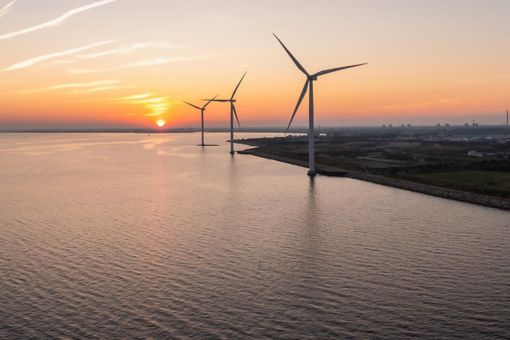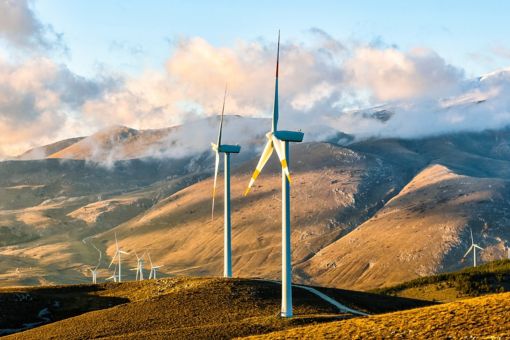“To survive these dynamic times, the Energy Sector needs to leverage the right technologies to generate a positive impact on the existing power and utilities framework.”
Meet Philip Jeandarme, Director, Energy & Natural Resources at KPMG in Belgium. Philip delves into how the Energy Sector is transforming and why placing customers at the center will propel businesses forward and yield unprecedented levels of performance and value.
Ongoing geopolitical tensions and climate change continue to pose significant threats to energy infrastructure and networks. With repercussions felt across the globe, to say that we find ourselves in the middle of an energy crisis would be stating the obvious. Philip, how is the Belgian Energy Sector coping?
Philip Jeandarme: Significant changes are underway in the Belgian Energy sector. I’m talking about new, creative ways to store and transfer energy, smart meters and the impact of real-time data, and growing network challenges, to name a few. We’ve also noticed evolving customer needs as a result of increased awareness and heightened service expectations, active network participation, and altered consumption behavior. Customers need simple answers to complex issues and are used to getting service NOW. Oh, and they also want you to support a social cause that means something to them.
To survive this stream of dynamic change, organizations need to transform their business strategies. For the Energy Sector, this means leveraging the right technologies to generate a positive impact on the existing power and utilities framework.
What do businesses need to do to reinvent themselves? And what could happen if they don’t?
Philip Jeandarme: It’s quite simple – put the customer at the center of your (digital) transformation and then expand your view to the needs of your entire internal and external ecosystem. Customers are taking on a more active role and the demand on the energy grid continues to rise. Business leaders need to reassess their operational strategies and customer interactions and prioritize which investments to make. They need to ensure a clear strategy for responding to the new needs of their customers. Simultaneously, they should address the concerns of their employees and ecosystem to ensure sustainable success.
If the energy sector fails to reinvent themselves, the repercussions will be far-reaching. I may sound a little dramatic when I say this but, the survival of civilization depends on access to reliable and sustainable energy sources. Failure could lead to the crippling of the economy, (further) environmental disasters and, ultimately, the extinction of (wo)mankind. Let me put it like this, without innovation and access to the right technology, the sector would be forced to rely on outdated infrastructure and would not be able to meet the growing demands. Failure to adopt cleaner energy practices will contribute to climate change and other ecological issues. And let’s not forget that the global population continues to grow which means increasing energy needs. Unless we find ways to be less dependent on fossil fuels, we could very well be exposed to energy shortages or disruptions. Imagine daily planned electricity cuts like in certain developing countries. The economy would be crippled and there would be riots!
Another potential issue that may not immediately come to mind is the increasing security risk in energy systems with the widespread adoption of digital technologies to address these challenges. This risk is further aggravated by threats from Russia and Asia. Fast action is required, and fortunately, the EU is establishing a rapidly growing framework to address this issue.
How do you help the Energy Sector navigate these challenges?
Philip Jeandarme: I try to guide my clients towards simplicity. Once we’ve helped them figure out where they want to go, we can map out what they need to do to get there. Artificial Intelligence (AI) and Intelligent Automation (IA) offer several benefits to the Energy Sector in terms of helping to enhance efficiency and productivity, sustainability, decision-making, creating new products and services, and fostering innovation. For instance, AI has the power to optimize an ecosystem of interactions, aligning energy supply and demand to flexibly respond to the influx of green energy from both large wind farms and residential rooftops. IA can optimize the distribution of energy by dynamically adjusting grid parameters based on real-time demand and supply data. This can help reduce energy wastage and maximize energy resources. What’s more, AI-powered chatbots and virtual assistants can enhance customer service by providing personalized information, managing inquiries, and offering energy efficiency tips, as long as appropriate risk management measures are established.


Concretely, which solutions can KPMG offer to help the Energy Sector?
Philip Jeandarme: The good news is that, in the spirit of keeping things simple, we’ve found a way to facilitate what needs to be done in what we call KPMG Connected Enterprise. This is our customer-centric approach for digital transformation that focuses on critical processes, functions, and relationships to meet customer expectations, drive business value, and ensure sustainable growth.
The Connected Approach breaks down functional silos by aligning discussions across business operations, IT, and employees, throughout your ecosystem and beyond. With the customer at the center, it creates a strategic canvas that can be adapted to any business or sector. Our approach can help identify obsolete IT architecture, connect strategy discussions, and transcend functional silos. It helps the Energy Sector prepare for the future by defining a roadmap to maximize ROI on data and AI investments, and provides guidance in making data-backed decisions, optimizing customer focus, and minimizing operational costs.
I briefly mentioned cybersecurity earlier. The Connected Approach brings a secured digital transformation, embedding cybersecurity practices into every facet of an energy company's operations. It strengthens organizations against cyber threats to safeguard the reliability and resilience of their operations.
By leveraging the right tools and technology, we can help the Energy Sector become more resilient, sustainable, and responsive to the dynamic challenges it faces in today's evolving landscape.
Synergizing Energy, Urbanization, and Climate Resilience
Join us in exploring the imperative of collaborative efforts between the energy sector and urban environments to achieve net-zero emissions. Dive into the dialogue on sustainability and urban transformation while we unpack the collaborative strategies needed to achieve our goals.

Voices on 2030: The new reality for Energy
Discover more perspectives from Voices representing the energy industry.
Download full report ⤓
Connected Enterprise
KPMG Connected Enterprise is our approach to customer-centric digital transformation, tailored by sector. It aligns your business around your customers to create a seamless, agile, digitally enabled organization that delivers better experiences and new levels of performance and value – at scale across your front, middle and back offices.
Explore
Connect with us
- Find office locations kpmg.findOfficeLocations
- kpmg.emailUs
- Social media @ KPMG kpmg.socialMedia







